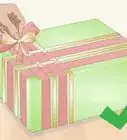X
This article was co-authored by Language Academia. Language Academia is a private, online language school founded by Kordilia Foxstone. Kordilia and her team specialize in teaching foreign languages and accent reduction. Language Academia offers courses in several languages, including English, Spanish, and Mandarin.
This article has been viewed 30,600 times.
The Spanish verb hacer means "to do" or "to make" in English.[1] Unlike most verbs, "hacer" is irregular, so it does not always follow the same conjugation rules that apply to Spanish "-er" verbs as a whole. If you need to know how to conjugate "hacer" in a particular tense, keep reading.
Steps
Method 1
Method 1 of 5:
Indicative
-
1Conjugate hacer in the present indicative. The present indicative is the simplest, most common verb form and is used to talk about something one is currently doing.
- Example: "I do my homework," Hago mi tarea.
- yo: hago[2]
- tú: haces
- él/ella/usted: hace
- nosotros/-as: hacemos
- vosotros/-as: hacéis
- ellos/ellas/ustedes: hacen
-
2Learn how to conjugate hacer in the preterit indicative.[3] Use the preterit indicative to describe a concrete action that was done in the past and which has been completed or has otherwise come to a clear end.
- Example: "Maria did her homework," Maria hizo su tarea.
- yo: hice
- tú: hiciste
- él/ella/usted: hizo
- nosotros/-as: hicimos
- vosotros/-as: hicisteis
- ellos/ellas/ustedes: hicieron
Advertisement -
3Use the imperfect indicative. The imperfect indicative of hacer should be used when you need to describe something a concrete action that was done in the past, but one which had no definite and an may still continue in the present.
- Example: "I used to do my homework," Hacía mi tarea.
- yo: hacía
- tú: hacías
- él/ella/usted: hacía
- nosotros/-as: hacíamos
- vosotros/-as: hacíais
- ellos/ellas/ustedes: hacían
-
4Conjugate hacer in the future indicative. Use the future indicative when talking about an action that will definitely be done in the future.
- Example: “Maria will do her homework tomorrow,” Maria haría su tarea de mañana.
- yo: haré
- tú: harás
- él/ella/usted: hará
- nosotros/-as: haremos
- vosotros/-as: haréis
- ellos/ellas/ustedes: harán
-
5Know the correct way to conjugate hacer in the conditional indicative. The conditional indicative tense should be used when you are trying to describe an action that will definitely be done in the future as long as another condition is true.
- Example: "I will do my homework tonight if I have time," Haré mi tarea esta noche si tengo tiempo.
- yo: haría
- tú: harías
- él/ella/usted: haría
- nosotros/-as: haríamos
- vosotros/-as: haríais
- ellos/ellas/ustedes: harían
Advertisement
Method 2
Method 2 of 5:
Subjunctive
-
1Use the present subjunctive. The present subjective should be used if you are talking about a present or current action that one doubts is being done.
- Example: "I doubt that Pedro does his homework," Dudo que Pedro haga su tarea.
- yo: haga
- tú: hagas
- él/ella/usted: haga
- nosotros/-as: hagamos
- vosotros/-as: hagáis
- ellos/ellas/ustedes: hagan
-
2Conjugate hacer in the imperfect subjunctive. Use the imperfect subjunctive of hacer when describing a past action that you doubt or deny has been done.
- Note that for all six tenses, the imperfect subjunctive can be conjugated in two different ways.
- Example: "I doubt that Pedro did his homework," Dudo que Pedro hiciera su tarea.
- yo: hiciera or hiciese
- tú: hicieras or hicieses
- él/ella/usted: hiciera or hiciese
- nosotros/-as: hiciéramos or hiciésemos
- vosotros/-as: hicierais or hicieseis
- ellos/ellas/ustedes: hicieran or hicisen
-
3Learn the future subjunctive tense. Save the future subjunctive tense for occasions when you must describe an action that may or may not be done in the future, or one which you have doubt or denial about.
- Example: "I doubt that we will do our homework tomorrow," Dudo que hiciéremos nuestra tarea de mañana.
- yo: hiciere
- tú: hicieres
- él/ella/usted: hiciere
- nosotros/-as: hiciéremos
- vosotros/-as: hiciereis
- ellos/ellas/ustedes: hicieren
Advertisement
Method 3
Method 3 of 5:
Imperative
-
1Conjugate in the affirmative imperative. You should use the affirmative imperative to give a command or demand about someone doing something.
- Note that there is no imperative conjugation for the singular first person "yo" ("I").
- Example: "Do your homework," Haz tu tarea.
- tú: haz
- él/ella/usted: haga
- nosotros/-as: hagamos
- vosotros/-as: haced
- ellos/ellas/ustedes: hagan
-
2Use the negative imperative. The negative imperative should be used when you need to give a command or demand to someone about not doing something.
- Note that there is no imperative conjugation for the singular first person "yo" ("I").
- Example: “Do not do your homework,” No hagas tu tarea.
- tú: no hagas[4]
- él/ella/usted: no haga
- nosotros/-as: no hagamos
- vosotros/-as: no hagáis
- ellos/ellas/ustedes: no hagan
Advertisement
Method 4
Method 4 of 5:
Perfect
-
1Conjugate hacer in the present perfect. Use the present perfect to describe an action that has been done and has been completed before the current moment, without entirely excluding the possibility that the action will be done again.
- This verb form is comprised of two parts: the conjugated helping very, "haber," and the singular past participle of the word "hacer."
- Example: "I have done my homework," He hecho mi tarea.
- yo: he hecho
- tú: has hecho
- él/ella/usted: ha hecho
- nosotros/-as: hemos hecho
- vosotros/-as: habéis hecho
- ellos/ellas/ustedes: han hecho
-
2Learn the preterit perfect form. The preterit perfect should be used to talk about an action done at a fixed point in the past.
- This verb form is comprised of two parts: the conjugated helping very, "haber," and the singular past participle of the word "hacer."
- Example: "You (plural) had done your homework," Hubisteis hecho vos tarea.
- yo: hube hecho
- tú: hubieste hecho
- él/ella/usted: hubo hecho
- nosotros/-as: hubimos hecho
- vosotros/-as: hubisteis hecho
- ellos/ellas/ustedes: hubieron hecho
-
3Use the past perfect conjugation. Switch to the past perfect form of hacer when describing the action of having done something at some fixed point in the past.
- This verb form is comprised of two parts: the conjugated helping very, "haber," and the singular past participle of the word "hacer."
- Example: "Maria and Pedro had done their homework," María y Pedro habían hecho su tarea.
- yo: había hecho
- tú: habías hecho
- él/ella/usted: había hecho
- nosotros/-as: habíamos hecho
- vosotros/-as: habíais hecho
- ellos/ellas/ustedes: habían hecho
-
4Conjugate in the conditional perfect. Write or speak in the conditional perfect when you need to describe an action that would have been done if a certain condition had also been met.
- This verb form is comprised of two parts: the conjugated helping very, "haber," and the singular past participle of the word "hacer."
- Example: "We would have done our homework if we had time," Habríamos hecho nos tarea si teníamos tiempo.
- yo: habría hecho
- tú: habrías hecho
- él/ella/usted: habría hecho
- nosotros/-as: habríamos hecho
- vosotros/-as: habríais hecho
- ellos/ellas/ustedes: habrían hecho
-
5Learn how to conjugate hacer in the future perfect. Use the future perfect form of hacer when you need to describe an action or situation that will have been done.
- This verb form is comprised of two parts: the conjugated helping very, "haber," and the singular past participle of the word "hacer."
- Example: "I will have done my homework if my appointment ends early," Habré hecho mi tarea si cito termina antes de tiempo.
- yo: habré hecho
- tú: habrás hecho
- él/ella/usted: habrá hecho
- nosotros/-as: habremos hecho
- vosotros/-as: habréis hecho
- ellos/ellas/ustedes: habrán hecho
Advertisement
Method 5
Method 5 of 5:
Perfect Subjunctive
-
1Use the present perfect subjunctive. The present perfect subjunctive is reserved for descriptions of any action that one doubts has been done at any point in the past.
- This verb form is comprised of two parts: the conjugated helping very, "haber," and the singular past participle of the word "hacer."
- Example: "I doubt that she has done her homework," Dudo que ella haya hecho su tarea.
- yo: haya hecho
- tú: hayashecho
- él/ella/usted: haya hecho
- nosotros/-as: hayamos hecho
- vosotros/-as: hayáis hecho
- ellos/ellas/ustedes: hayan hecho
-
2Switch to the past perfect subjunctive. Save the past perfect subjunctive when discussing an action that one doubts or denies had been done at a fixed point in the past.
- This verb form is comprised of two parts: the conjugated helping very, "haber," and the singular past participle of the word "hacer."
- Example: "I doubt that they had done their homework," Dudo que ellos hubieran hecho su tarea.
- yo: hubiera hecho
- tú: hubieras hecho
- él/ella/usted: hubiera hecho
- nosotros/-as: hubiéramos hecho
- vosotros/-as: hubierais hecho
- ellos/ellas/ustedes: hubieran hecho
-
3Conjugate hacer in the future perfect subjunctive. Use the future perfect subjunctive to discuss an action that one doubts will have been done.
- This verb form is comprised of two parts: the conjugated helping very, "haber," and the singular past participle of the word "hacer."
- Example: "I doubt that I would have done my homework if class ended late," Dudo que hubiere hecho mi tarea si la clase terminó tarde.
- yo: hubiere hecho
- tú: hubieres hecho
- él/ella/usted: hubiere hecho
- nosotros/-as: hubiéremos hecho
- vosotros/-as: hubiereis hecho
- ellos/ellas/ustedes: hubieren hecho
Advertisement
Community Q&A
-
QuestionWhat is the singular form of hacer? Yo?
 Community Answer"Yo hago."
Community Answer"Yo hago."
Advertisement
References
About This Article
Advertisement
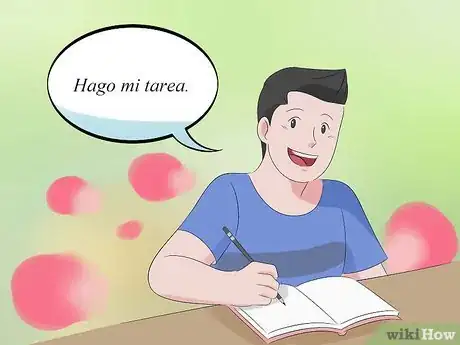




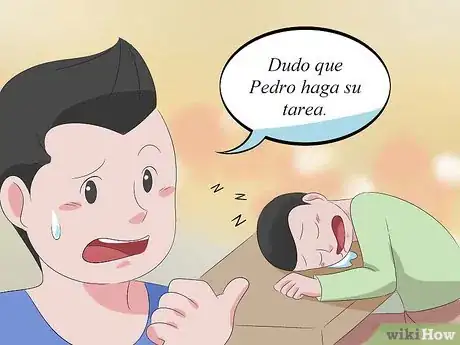
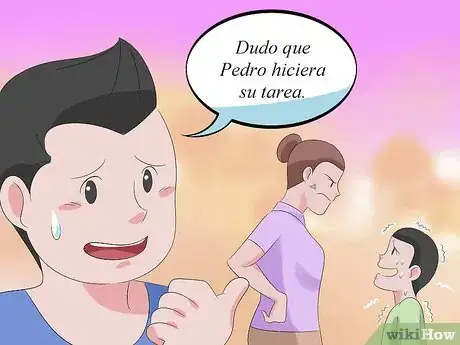
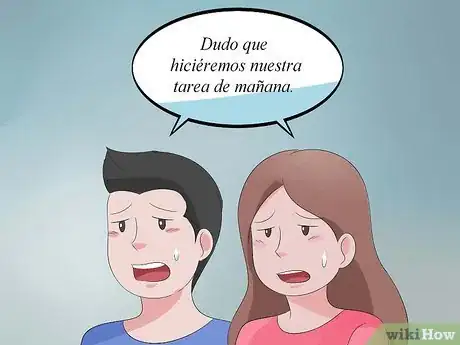
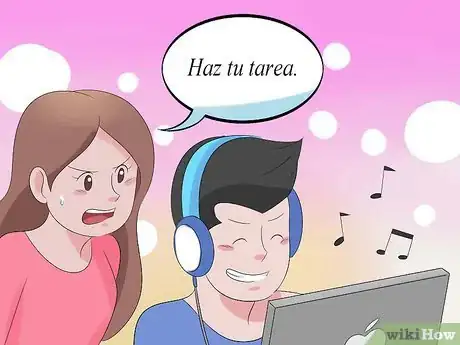
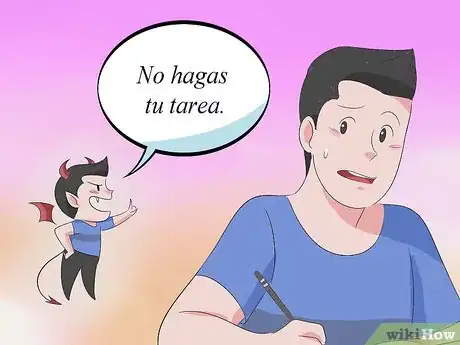
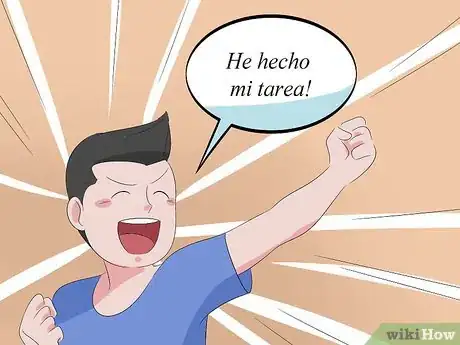
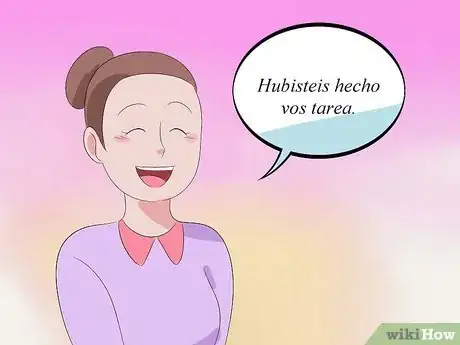

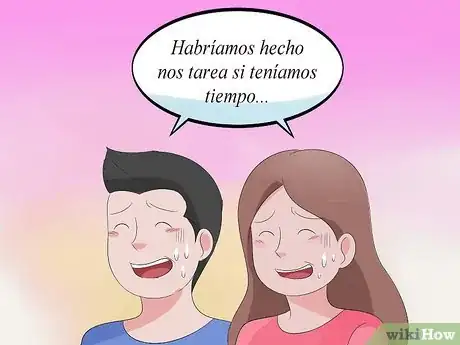
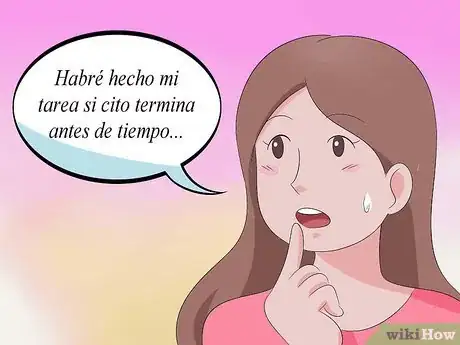
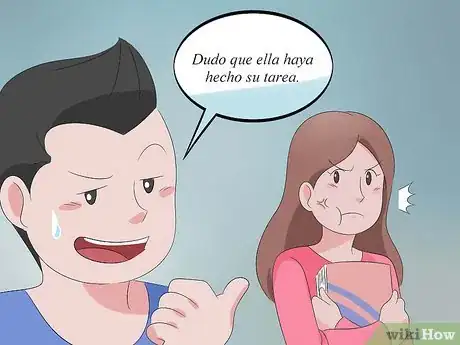

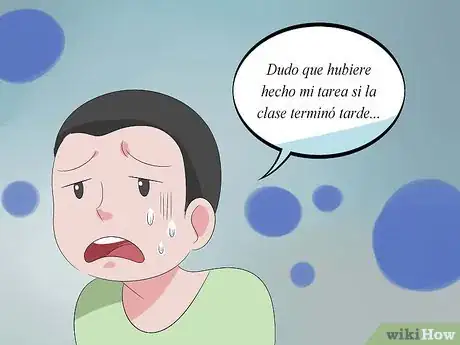


-Step-16-Version-2.webp)
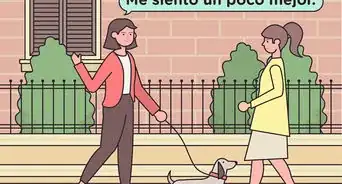
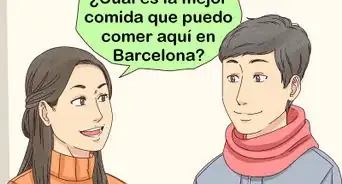


-Step-12-Version-2.webp)
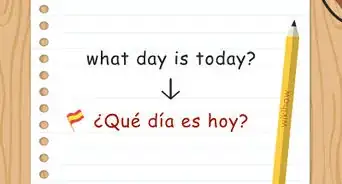



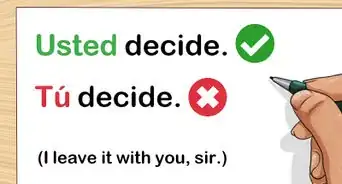
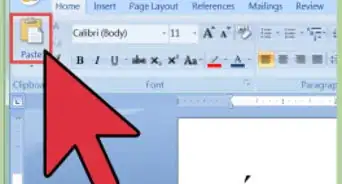



-Step-16-Version-2.webp)










